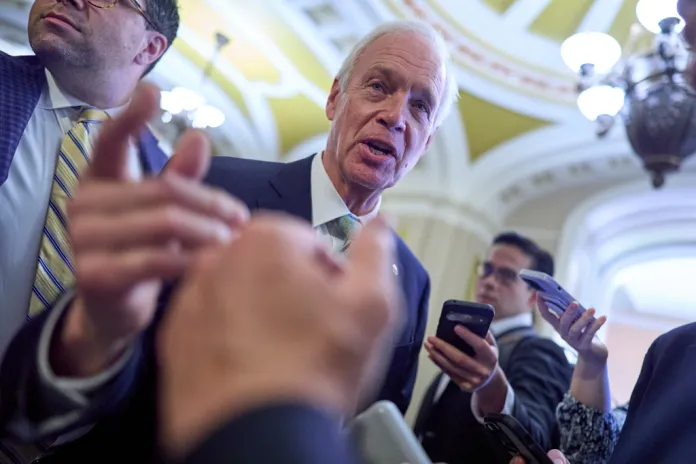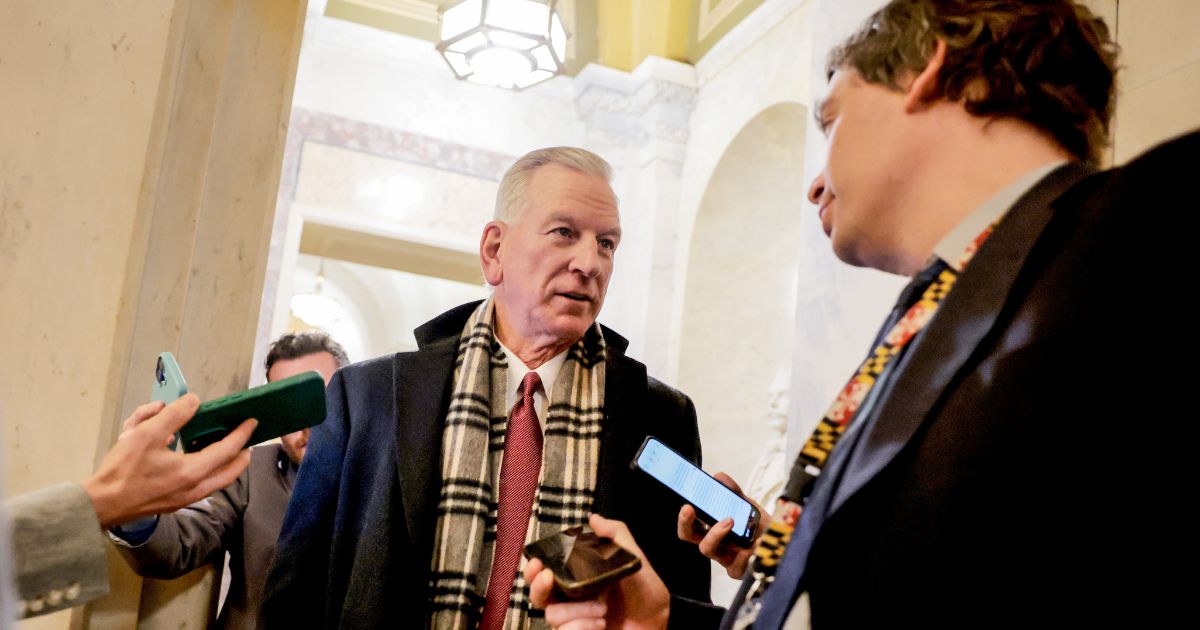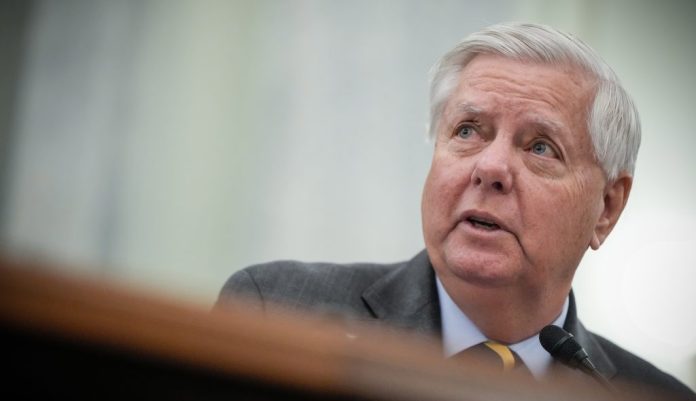Democrats and Republicans turn shutdown messaging to small businesses
The article discusses how small businesses have become a central issue in the ongoing government shutdown,wiht both Democrats and republicans using the economic impact on these businesses to pressure the othre side to reopen the government. Small Business Management (SBA) Administrator Kelly Loeffler highlighted how the shutdown has halted SBA loans, delaying access to capital for thousands of small businesses and threatening their growth and survival. Lawmakers, including House Republicans and a Virginia Democrat, are focusing on legislative solutions to support affected businesses. rep. Suhas Subramanyam introduced the “Keep Main Street Open Act,” aiming to provide short-term favorable loans to small businesses suffering losses during shutdowns. The shutdown’s economic repercussions extend beyond federal employees to local businesses dependent on their patronage, with concerns that prolonged gridlock could have long-term negative effects on the small business sector and public opinion. Various small business coalitions are urging the Senate to pass a clean continuing resolution to restore government operations and economic stability. Analysts stress that even after the shutdown ends, recovery will be gradual, as businesses face challenges in financing and planning for growth amid uncertainty.
Small businesses become Congress’s latest pressure point during shutdown
Small businesses are a new focal point of Democrats’ and Republicans’ messaging series on the consequences of the government shutdown, as both parties seek to apply pressure on the other to reopen the federal government and avoid any more program and funding lapses.
Small Business Administration Administrator Kelly Loeffler appeared at House Republicans’ daily leadership press conference on Monday alongside House Small Business Committee Chairman Roger Williams (R-TX) to call attention to the impact of the shutdown on small businesses.
She’s the latest Trump administration official to wade into the freeze as Republicans seek to keep the focus on Democrats and condemn their refusal to vote for a clean spending deal in the Senate.
“When the [Council of Economic Advisors] estimates that every week of the Democrat shutdown, it shrinks the U.S. economy by $155 billion, that cost is borne by Main Street. When they estimate that the Senate Democrat shutdown will cost our economy 43,000 jobs, those jobs are in local businesses,” Loeffler said.
“All because Sen. Schumer and his caucus are willing to sacrifice Main Street so that they can derail President Trump’s historic economic agenda, and appease the socialist radicals who are now in charge of the Democratic Party,” she added.
Meanwhile, new legislation unveiled on Tuesday by a Virginia Democrat aims to help small businesses avoid the blowback from this and future government shutdowns.
FEDERAL AGENCY ADVISES FURLOUGHED WORKERS TO BLAME DEMOCRATS FOR SHUTDOWN IN OUT-OF-OFFICE REPLY
Republicans blame SBA loan freezes on Democrats, say Main Street is ‘fearful’
Republicans have turned to pressure points like lapsing Supplemental Nutrition Assistance Program, known as SNAP, benefits and a delay in paychecks for military servicemembers to try and force Democrats’ hands so they’ll vote for the House-passed continuing resolution, which extends funding until Nov. 21.
The effects on small businesses and thousands of furloughed federal workers are two areas that hit close to home for Democrats, who have long messaged themselves as the party that best supports the working class.
The SBA administrator lauded the agency’s ability to provide over $45 billion in loans to nearly 85,000 small businesses in fiscal 2025. But, she said, the shutdown has put that momentum “at risk” as loans and guarantee programs are halted and Main Street’s capital has been “choked off.”
She said that every day of the shutdown, 320 small businesses are prevented from accessing $170 million in SBA loans for hiring and expansion.
“In Chuck Schumer’s own state, that is $40 million every single week,” Loeffler said.
With the shutdown hitting Day 27, in total, 6,000 small business loans have been prevented, she said, noting that many businesses are also suffering due to the pause in federal contracts.
Loeffler connected the small business loan crisis to the federal workforce layoffs and furloughs, noting that thousands of businesses that rely on federal employees as their customers suffer, including in Washington, D.C., around military bases, and in small-town Main Streets.
“It’s our storefronts that are cutting back hours, manufacturers that are shelving expansion plans, and generational businesses that are closing their doors for good. It’s business they will never get back,” Loeffler said.
Williams, also a small business owner, said 99% of Main Street and 75% of the federal workforce are comprised of small businesses, and they are “fearful.”
“It’s every small business in your hometown, in Schumer’s hometown, in my hometown,” Williams said. “And I’m not necessarily a congressman when I get home, as much as I am a small business owner, and I can tell you what’s happening out there. I’m worried about the 99%, I’m worried about the 75%.”
“Risk and reward built this country,” he added. “Right now, there’s no risk or reward. We’re just playing defense. That will not work.”
Democrats seek to bail out small businesses affected by future shutdowns in new legislation
Rep. Suhas Subramanyam (D-VA), a freshman Democrat who succeeded former Rep. Jennifer Wexton, introduced the Keep Main Street Open Act on Tuesday.
First shared with the Washington Examiner, the bill would require the SBA to provide a “short-term but very favorable” loan to small businesses in need based on their estimated losses due to a shutdown.
Subramanyam said in an interview that several small businesses cannot handle one to two months of hardship forced by a shutdown, so this bill would help keep them on their feet until Congress can pass a spending deal.
“We’re looking at a shutdown that could last more than a month, and it’s the second one under this President and the second one in the past 10 years,” Subramanyam said. “And so if shutdowns are going to be common occurrences, and they’re going to be lasting this long, then I think we have to have a program in place for these small businesses, especially ones in Virginia and other places, with a lot of federal workers and contractors.”
Subramanyam said they will begin circulating the bill to Democrats and Republicans on Tuesday with the hope of bipartisan support, especially from Republicans who have a high proportion of federal workers. He noted that there are not many Republicans left in the DMV region, one in Maryland and five in Virginia, thanks to President Donald Trump’s policies toward federal workers and contractors.
“So we do think it’ll be a little bit of a challenge for that reason. But at the same time, you know, I hope that the Republicans who represent a lot of federal workers will consider the impact it has on businesses in their district and consider signing on to this bill,” he said.
Small businesses could be key economic driver in public opinion, lawmaker approach to shutdown
Small businesses could be a significant turning point for the shutdown regarding Americans’ perception of blame and for lawmakers on Capitol Hill, as they determine how long they should hold out until it becomes too painful to keep filibustering.
A group comprised of the Family Business Coalition, International Franchise Association, Job Creators Network, National Association of Wholesaler-Distributors, National Restaurant Association, and the Small Business & Entrepreneurship Council sent a letter to U.S. senators on Monday asking them to pass a “clean CR” to open the government. The group, which represents millions of entrepreneurs and small business owners, said reopening the government will “provide certainty” for its organization members.
“In the past, both Democrats and Republicans have agreed that no one wins when the federal government is shut down,” the group wrote. “Historically, both parties have supported clean funding extensions to avoid shutdowns, including members who have taken the opposite stance today. That principle should remain the standard.”
“The effects of the shutdown will only grow wider with each passing day unless the Senate acts. Passing a clean CR is a smart, responsible, and bipartisan course of action,” the coalition added. “We urge every Senator to support a clean CR that allows the appropriations process to move forward to ensure the federal government remains open and operational.”
Peter Loge, political strategist and director of the School of Media and Public Affairs at George Washington University, said he doesn’t think any party is currently winning the messaging battle and that small businesses could push the impact out of the Washington area.
“It’s easy in Washington to think about the politics of who’s up and who’s down, and what does this mean for the midterms, and get caught in a game of it, but it’s easy to forget there’s actually people attached to these things,” Loge said. “These are not just hard-working civil servants or people who are keeping our airport safe, but it’s also everybody who relies on them: the coffee shop on the corner, the sandwich shop down the block, the local restaurant that a family can’t afford to go to because they didn’t get paid. The ripple effects throughout the economy are pretty profound.”
Ted Rossman, senior industry analyst for Bankrate, told the Washington Examiner that small businesses were already facing a “challenging year” thanks to the Trump administration’s tariffs, which have received mixed reviews from both Republicans and Democrats.
Rossman said the shutdown is “just another log on that fire” when it comes to market uncertainty.
Like tariffs, he said, the shutdown makes it more difficult for businesses to plan and invest in equipment, particularly as the holiday season approaches. Though many would have started to prepare for the holidays prior to the shutdown, they can’t, for the time being, rely on SBA loans to advance their business and grow their space, or even depend on the federal workers to shop in their stores.
“I feel like that all these things have made it a challenging year for small business. I feel like they’re not as well equipped to manage some of these challenges as their larger rivals,” Rossman said.
Even when the shutdown ends, the ripple effect will be felt long after the government is reopened and SBA loans are available again. He noted that economic data on the effect of the shutdown won’t be available right away, as it takes time to gather job reports, inflation reports, and retail sales numbers.
FEDERAL WORKERS’ UNION CALLS ON DEMOCRATS TO PASS GOP FUNDING BILL
“This might be pushing more businesses to either delay purchases or finance them in another way,” Rossman said. “Maybe it means taking on credit card debt, which is a very expensive form of financing. Rates there are often double what you might get on an SBA loan. Or maybe it’s more bootstrapping through friends and family, or cutting back on something else.”
“It’s not all going to be solved, Day One post-shutdown,” he added.
" Conservative News Daily does not always share or support the views and opinions expressed here; they are just those of the writer."




